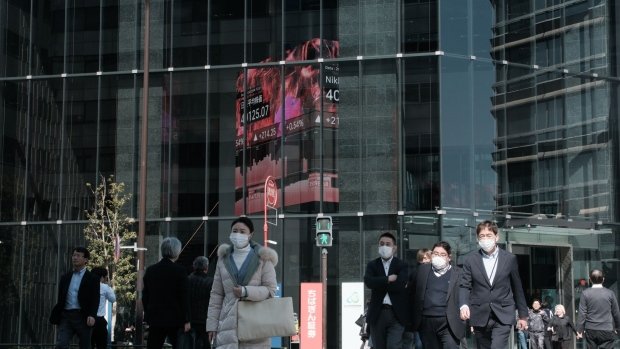(Bloomberg) — Japanese investors have been increasingly piling into alternative assets in recent years, and the trend is likely to continue as they search for yield, according to a report from market data provider Preqin Ltd.
The number of investors in Japan that are actively allocating money into assets like private debt, real estate and hedge funds has grown by 50% since 2019, the report showed Tuesday.
Pension funds, insurers and others are seeking out higher returns as Japan’s economy turns inflationary, providing opportunities for foreign funds that can offer higher-yielding products. High-net-worth individuals and retail investors in the country are also emerging as a new area to tap, according to the report.
Japanese investors in private debt increased faster than other alternative asset classes last year, and demand for overseas credit is likely to remain strong this year considering the nation’s low interest rates, according to Preqin, which surveyed local investors in November for the report.
Read more: Blackstone Taps Strong Japanese Demand With Private Credit Fund
Japan has historically been a rich source of funds, but the market has a high barrier to entry. Firms need to put time and resources into building relationships with intermediaries that have access to the biggest allocators.
The report also highlighted the potential for more allocation into alternatives from Japan’s pension funds. The government pension fund GPIF, which oversees about $1.5 trillion, has set a 5% allocation for alternatives, but so far only has about 1.5% of assets invested, mostly focused on infrastructure and real estate, with little in private equity and hedge funds, according to Preqin.
Two other pensions for local government officials and municipal workers, which together have more than $300 billion in assets, also target alternative allocations of 5% but have invested less than 1% of assets into the category, the report said.
©2024 Bloomberg L.P.

